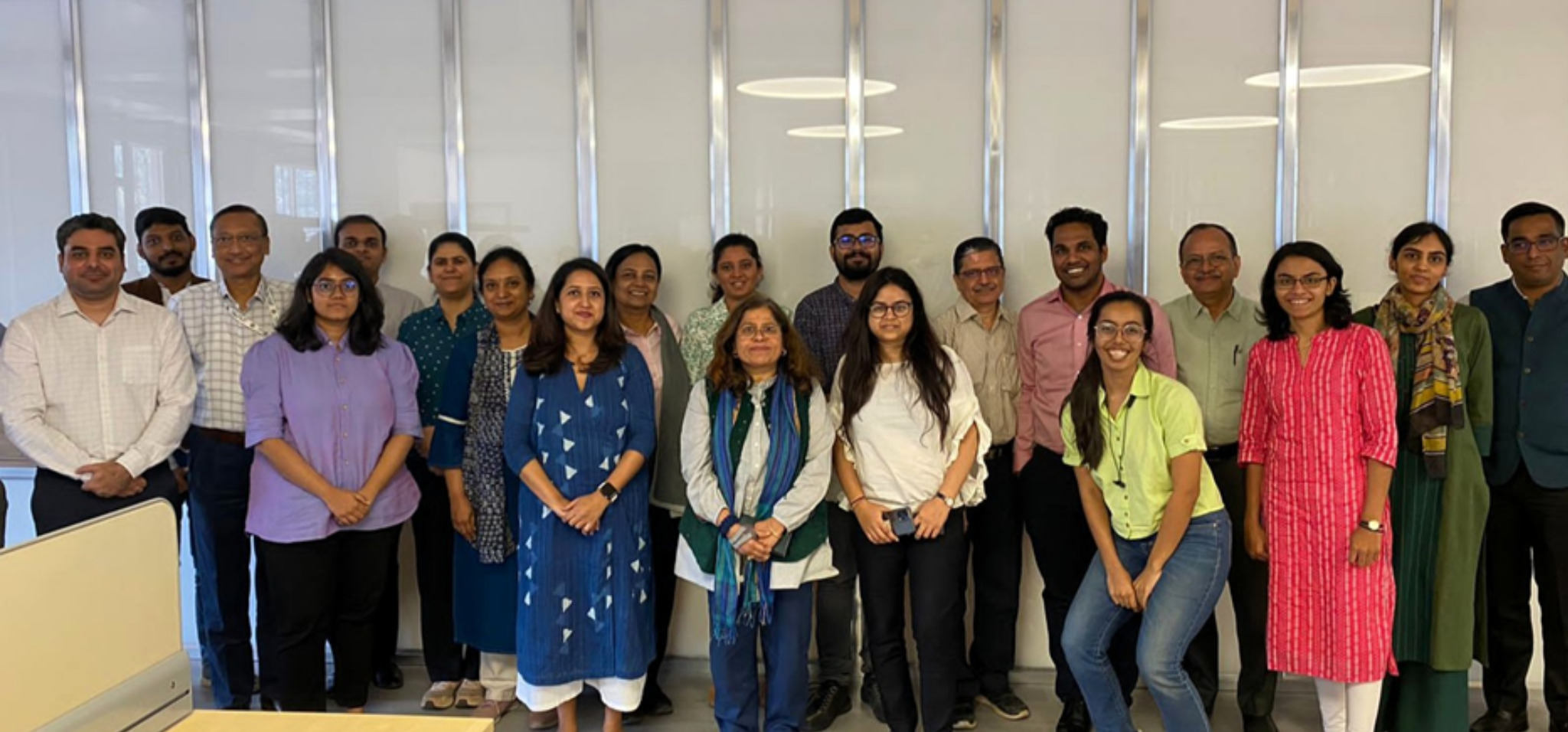
Workshop 'Approaches to Modelling Maharashtra’s Long-Term Climate Strategies' (WRI India, Mumbai – January 8, 2024)
TweetAuthor: Ankit Saha (IIM-A, FABLE India).
The FABLE India team, based at the Indian Institute of Management Ahmedabad (IIMA), has been working towards shaping discussions around India’s Long-Term Low-Emissions Development Strategies (LT-LEDS).
With the support from the International Climate Initiative (IKI) project “2050 is now: Aligning climate action with long-term climate and development goals”, the team has been able to engage in meaningful dialogues, knowledge-sharing, and scientific modeling, reinforcing the need for strengthening the role of the Agriculture, Forestry, and Other Land Use (AFOLU) sector in the achievement of India’s LT-LEDS.
Here’s how our stakeholder engagements have tried to support the achievement of India's long-term climate mitigation goals:
Approaches to Modelling Maharashtra’s Long-Term Climate Strategies (WRI India, Mumbai – January 8, 2024)
Maharashtra, India’s second-largest state, is a highly industrialized and energy-intensive economy. To discuss long-term economic and energy strategies for the state, we participated at a modelling workshop organized by WRI India, that brought together policymakers, academics, and think tanks. The goal was to explore how modelling approaches can help Maharashtra achieve its dual objectives: becoming a trillion-dollar economy by 2025 while making deep emission cuts by 2050.
The workshop aimed to gather insights from analyses conducted in Maharashtra, explore critical modelling questions, and ways to strengthen collaboration through a Community of Practice. We discussed with participants about the need for enhanced analytical outputs and knowledge sharing to guide state-level planning across key sectors, ensuring sustainable growth while mitigating climate risks.
Strengthening Science-Policy Integration for Sustainable Agriculture (ISEC, Bengaluru – January 23, 2024)
In Bengaluru, we contributed to a multi-stakeholder consultation at the Institute for Social and Economic Change (ISEC), which focused on how science can better inform policy decisions on sustainable agriculture that ensure food and nutrition security while contributing to climate change mitigation. Discussions revolved around enhancing farm incomes and livelihoods, engaging youth in agriculture, and ensuring an equitable transition toward climate-resilient food systems.
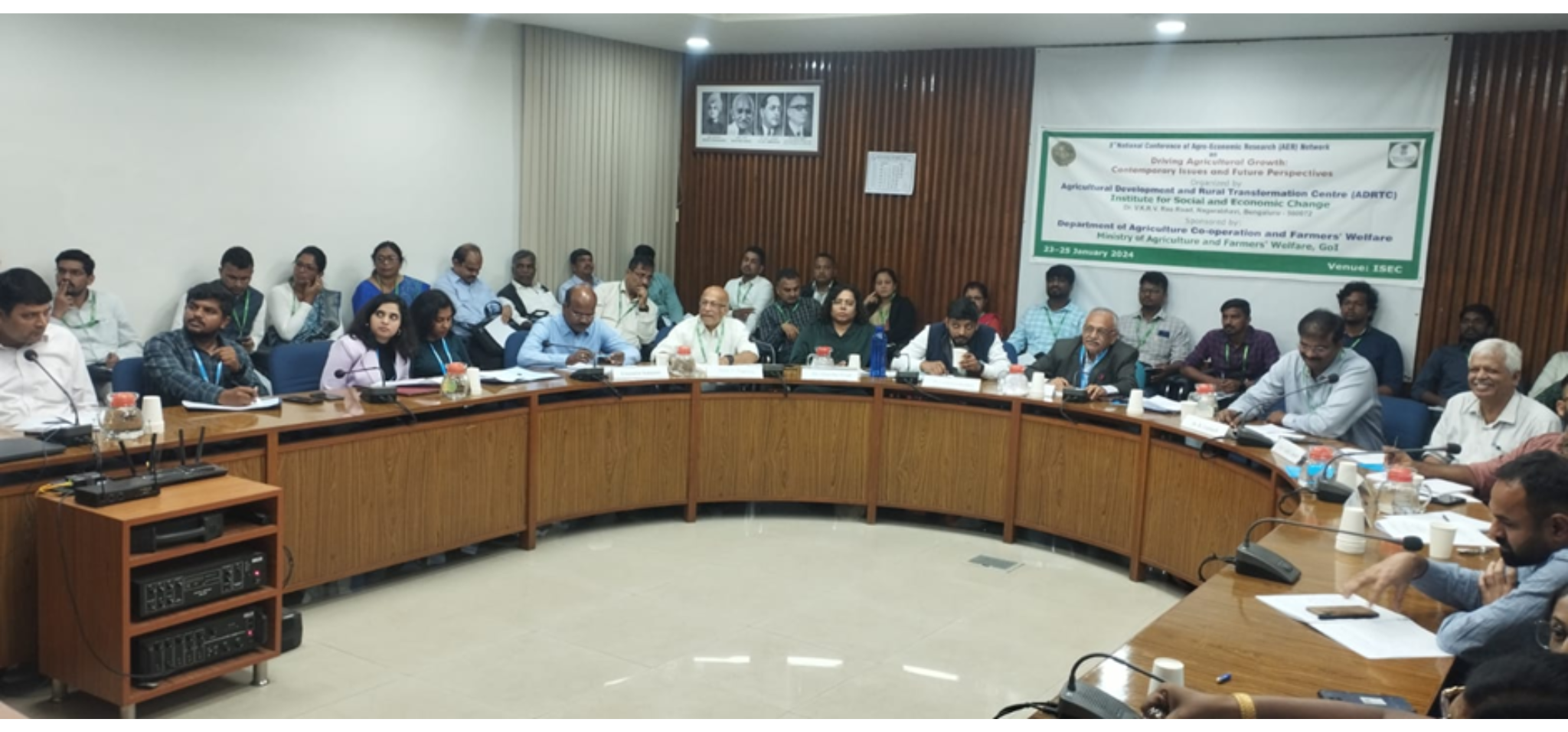
FABLE India led the discussion on the hidden costs of India’s agri-food system. We showed the spillover costs of food production on natural resources, the costs of distributional failures within agrifood systems, and productivity losses due to current dietary patterns.
The discussion brought together representatives from government bodies, like the Commission for Agricultural Costs and Prices (CACP) and NITI Aayog, along with research institutes and universities such as the Agro-Economic Research Network, Gokhale Institute of Politics and Economics, University of Agricultural Sciences, SV Agricultural University, Jawaharlal Nehru University (JNU); think tanks like International Crops Research Institute for the Semi-Arid Tropics (ICRISAT), M.S. Swaminathan Research Foundation (MSSRF), World Resources Institute (WRI) India, Forum for the Future, Centre for Study of Science, Technology, and Policy (CSTEP), and the Institute of Economic Growth (IEG).
Building Capacity for Low-Carbon Agricultural Practices (MANAGE, Hyderabad – March 18, 2024)
At the National Institute of Agricultural Extension Management (MANAGE), the FABLE India team participated in a two-week international training program on "Nutrition Sensitive Agriculture for Addressing Malnutrition". Vartika Singh, from the team, facilitated a session on the links between climate change and food security.
With participants from 22 countries and contributions from FAO India, the training provided a platform for sharing best practices to address malnutrition through sustainable agriculture, apply the nutrition-sensitive agriculture approach, and increase low-carbon agricultural solutions through a pathway methodology.
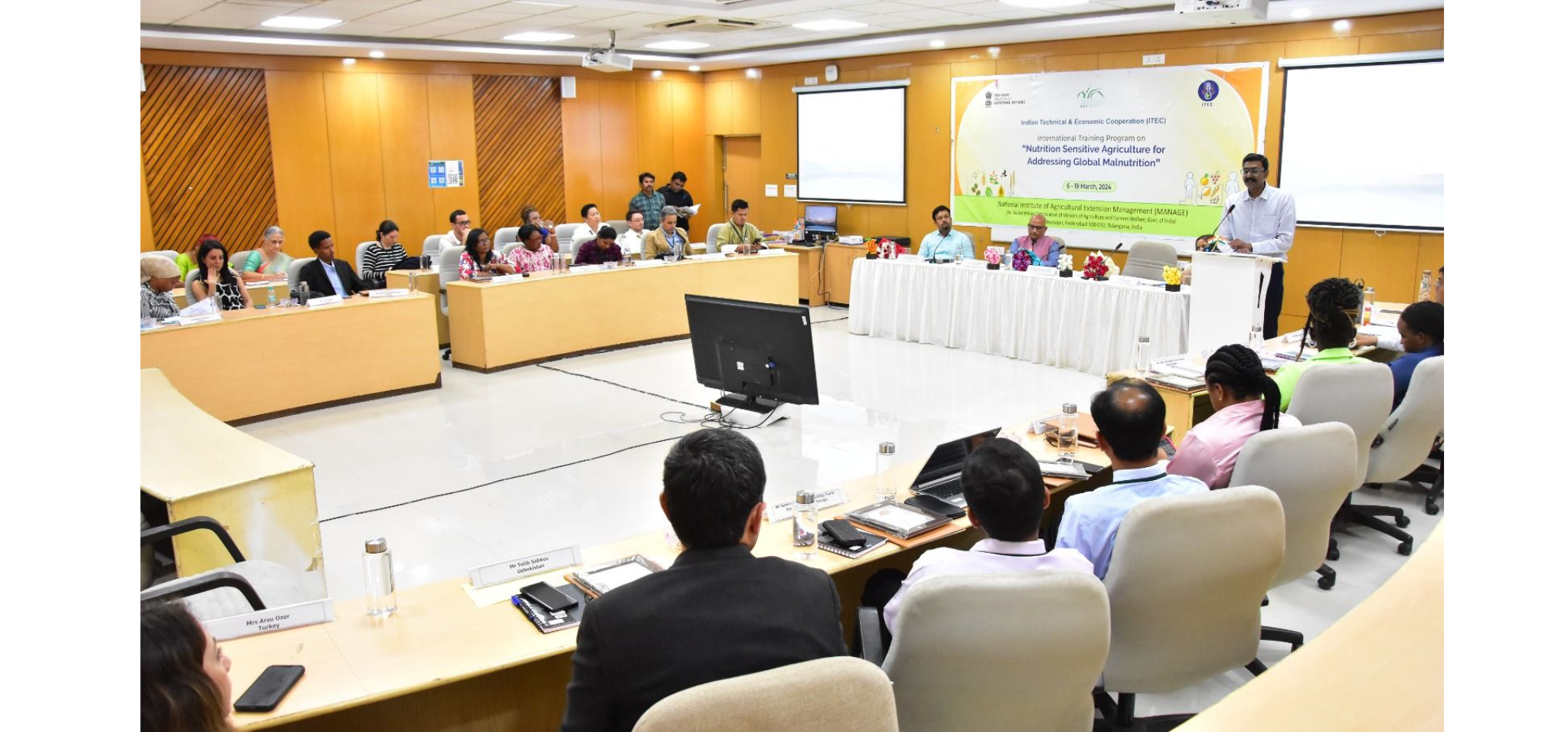
Bridging Sustainable Agriculture and Biodiversity Conservation: A knowledge exchange workshop (IISER Tirupati – May 22-23, 2024)
India faces the challenge of balancing food production with biodiversity conservation, where agricultural intensification and expansion lead to biodiversity loss, which in turn affects food production. Achieving sustainability and biodiversity goals requires systemic thinking, multi-stakeholder collaboration, and policy interventions that align agricultural growth with ecological resilience.
A workshop at the Indian Institute of Science Education and Research (IISER) Tirupati, co-organised with the University of Cambridge, examined the intersection between food and biodiversity interaction. It focused on identifying priority actions, addressing institutional and governance barriers, and fostering cross-sector collaboration to drive meaningful change in food and land-use systems.
The event gathered experts from academia, research, government, NGOs, and international organizations, such as IIT Kanpur, University of Calcutta, WWF India, FAO India, IUCN India, CIFOR-ICRAF, Rainforest Alliance, and the UN Environment Programme (TEEB).
The inter-disciplinarity of the group facilitated inclusivity and collaboration across discussions, balancing sustainability and conservation and enabling the identification of pathways to ensure resilience with minimal trade-offs between food and biodiversity. The workshop’s outcomes have informed a joint research paper submitted to Environmental Science and Policy.
Showcasing India’s Agroecological Strategies for Long-Term Emission Reduction and Biodiversity Conservation (World Biodiversity Forum, Davos – June 17, 2024)
At the World Biodiversity Forum in Davos, Professor Ranjan Ghosh (FABLE India coordinator) presented findings from the India FABLE Calculator, demonstrating how agroecological practices can reduce emissions and the role of scientific modeling in guiding land-use decisions and the achievement of India’s broader sustainability commitments.
The presentation sparked valuable discussions with government, industry leaders, and global scientists, including from the Natural History Museum (NHM), that proved instrumental in refining the interlinkages between climate and biodiversity in the study presented by FABLE India.
These discussions have contributed to shaping a roadmap to 2050 for India’s food and land-use system, aligning agricultural and land-use strategies with long-term environmental and emissions reduction goals. The roadmap is expected to build the case for an integrated approach to the AFOLU sector that contributes to the achievement of India’s LT-LEDS.
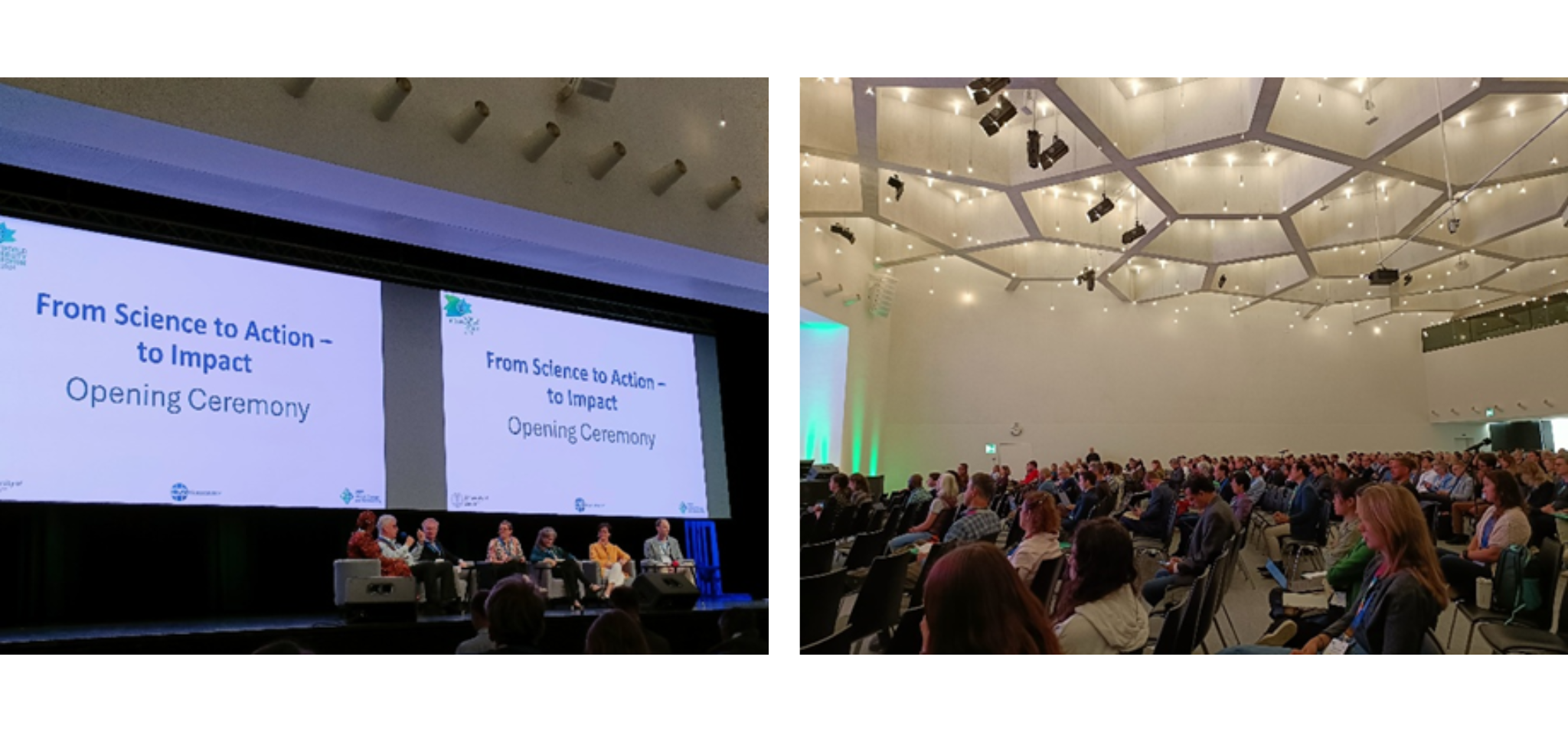
Advancing Water-Energy-Food Nexus Solutions (IWMI Workshop, New Delhi – October 15, 2024)
In New Delhi, Vartika Singh, on behalf of the FABLE India team, contributed to a workshop organized by the International Water Management Institute (IWMI) focused on the Water-Energy-Food (WEF) Nexus in the Ganges Basin. Discussions centred on integrated hydrological modeling, policy-relevant decision support tools, and strategic stakeholder engagement to refine climate-responsive agricultural strategies.
A key highlight was the India FABLE Calculator’s downscaled version for the Ganges Basin, to analyze food and nutrition security in the region across six states. This tool evaluates dietary shifts, agricultural practices, and resource use, ensuring a balance between food security, nutrition, and environmental sustainability. Given the basin’s heavy reliance on irrigation for agriculture, these assessments can significantly strengthen future Nationally Determined Contributions (NDCs) by providing a more comprehensive and granular perspective for sub-national decision-making that aligns with national and global sustainability goals.
A key outcome from this workshop has been the WEF Scenarios Dashboard, developed in collaboration with IWMI, which serves as a decision-support tool, integrating data across Water-Energy-Food-Environment (WEFE) sectors.
The workshop gathered experts from academia and research institutions such as NIH, IARI, IIT Delhi, IIT Roorkee, the Indian Institute of Soil and Water Conservation, and the Indian Institute of Water Management. Key government bodies such as the Ministry of Jal Shakti (Mo Water Supply), National Remote Sensing Centre (NRSC), and the Indian and Central Water Commission (CWC) participated in discussions alongside multilateral organizations like the International Commission on Irrigation and Drainage (ICID), the Asian Development Bank (ADB), and the World Bank.
Strengthening Local Governance for Sustainable Development (RGSA Scheme, Gujarat)
The FABLE India team has been engaging with local government leaders, as part of the Rashtriya Gram Swaraj Abhiyan (RGSA) scheme in Gujarat, an initiative led by a IIM-A. This program focuses on building governance capacity among local Panchayats or village councils, serving as self-governments, using the Localisation of SDGs (LSDGs) framework, with climate adaptation as a central pillar.
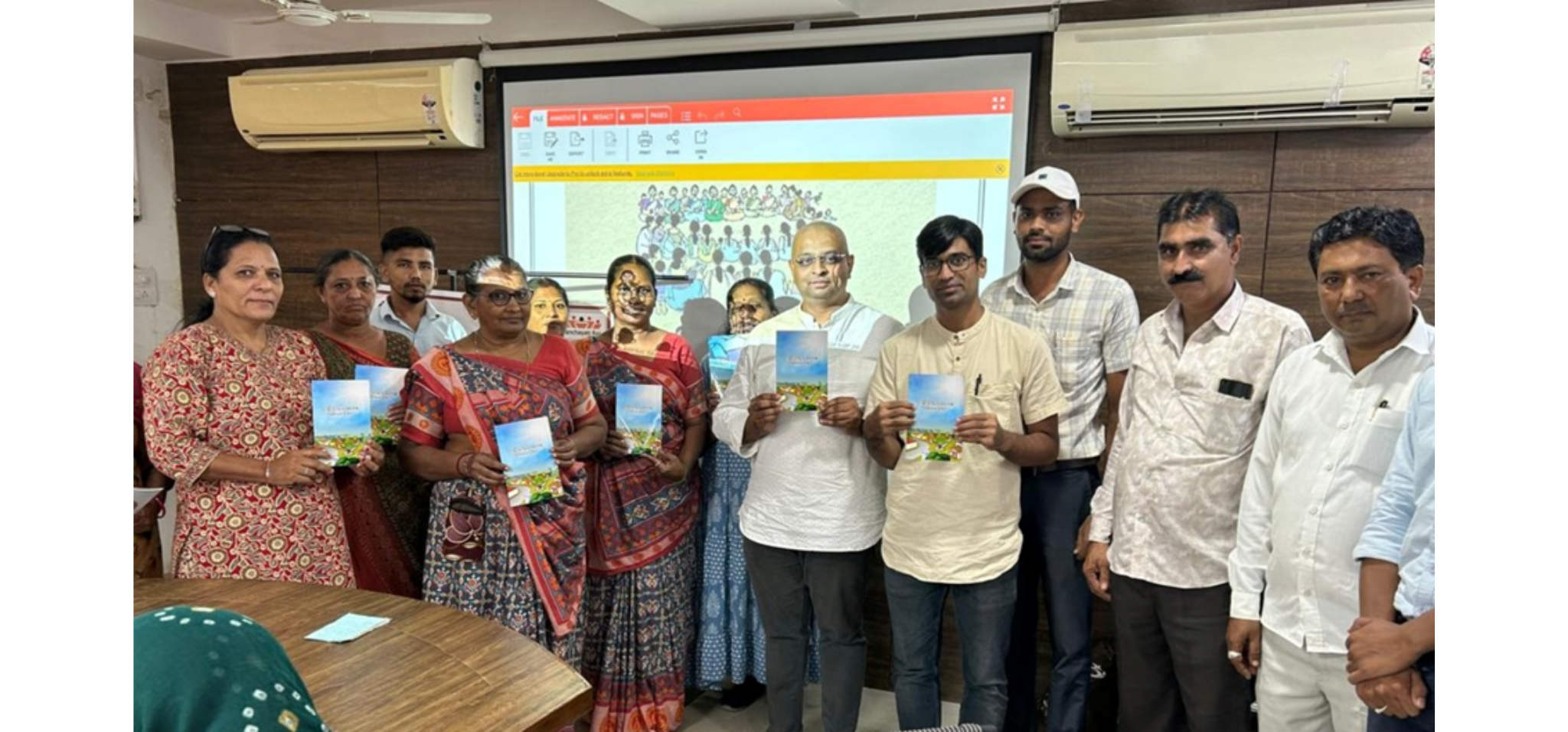
Within the RGSA initiative, the analysis conducted by FABLE India on the food and land use sector has been used to guide these trainings that aim to ensure that sustainable agricultural practices are integrated into local governance strategies, reinforcing climate resilience and long-term sustainability. In particular, scientific evidence produced by the team on the synergies between land use and soil conservation, minor irrigation, water management, watershed development, and livestock management have been essential for these trainings.
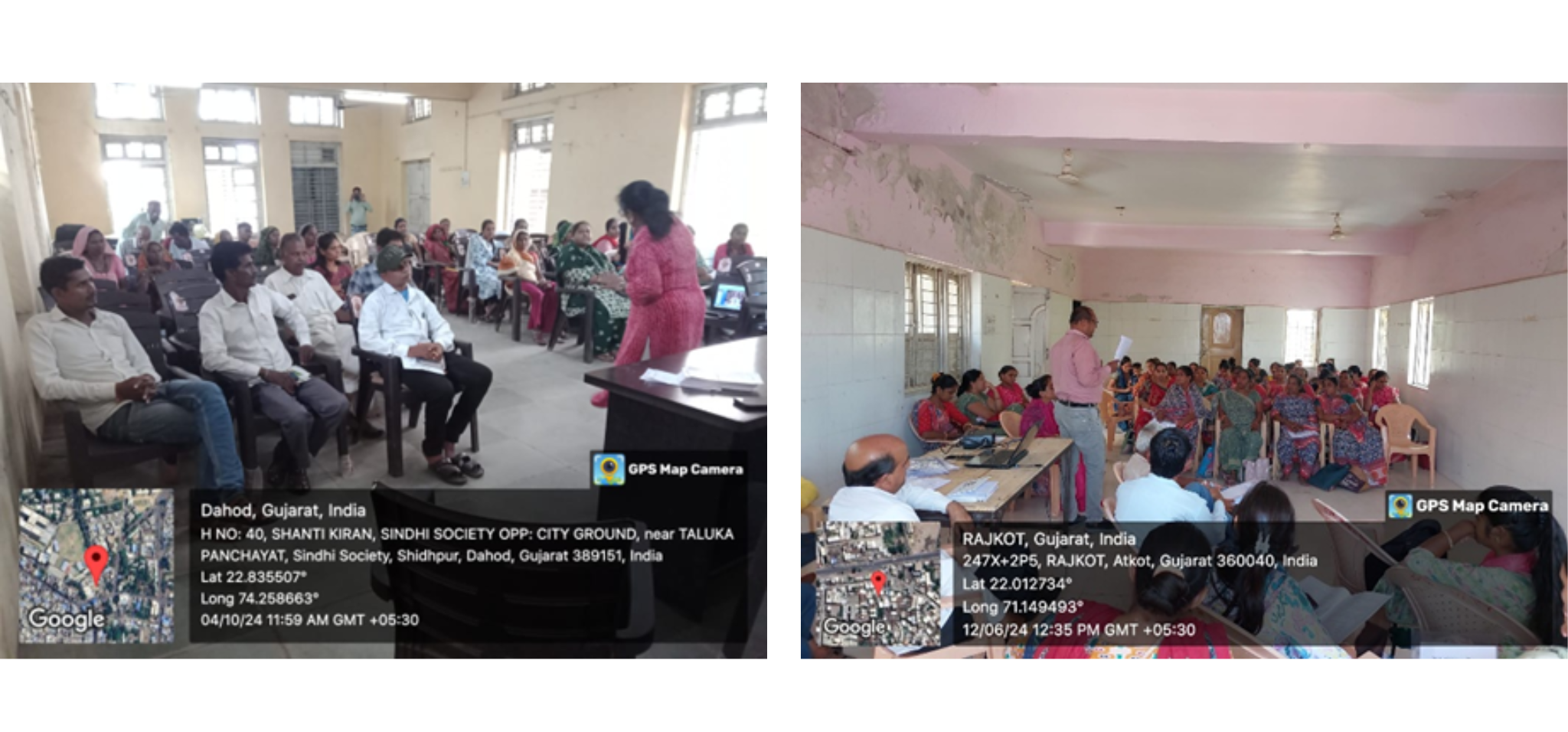
Through this initiative, the FABLE India team has collaborated with government bodies, like the Ministry of Panchayati Raj, Ministry of Rural Development, Ministry of Jal Shakti (Water Supply), Panchayat Rural Housing and Rural Development Department, and the Agriculture, Farmer Welfare & Cooperation Department.
Moving forward: Bridging research and policy for impact
The FABLE India team’s engagements have strengthened the foundation for critical discussions and collaborative solutions in food and land use systems, water management, and governance. However, to translate these insights into action, the focus must shift to translate these research findings into policymaking. By ensuring that evidence-based strategies shape national and sub-national policy decisions, India can make significant strides toward its LT-LEDS goals, reducing its environmental footprint while fostering climate resilience and sustainable development.